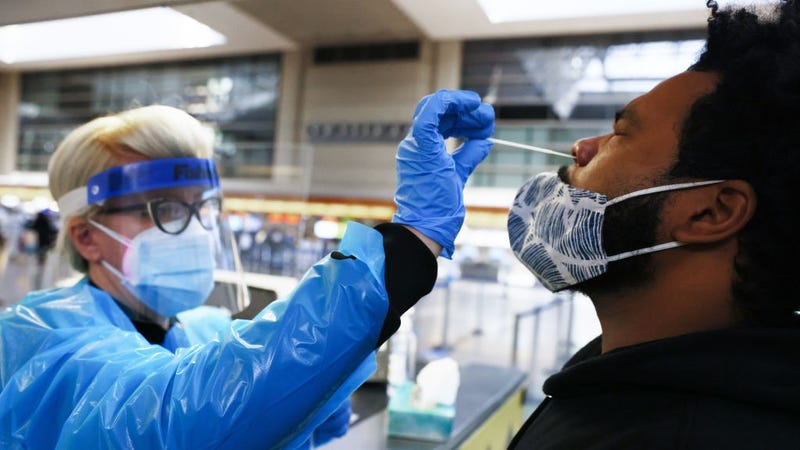
The Food and Drug Administration said on Tuesday that rapid COVID-19 tests may be less accurate at detecting the omicron variant than earlier strains.
The FDA collaborated with the National Institutes of Health’s RADx program to determine these findings by examining the performance of at-home rapid tests with the omicron variant.
“Early data suggests that antigen tests do detect the omicron variant but may have reduced sensitivity," the FDA said in a statement.
Earlier testing of the Omicron variant was done with only heat-inactivated samples, and that method allowed rapid tests to detect Omicron with similar success to other variants.
“The FDA and RADx are continuing to further evaluate the performance of antigen tests using patient samples with live virus,” the FDA said.
It has become a recent challenge for Americans to purchase at-home rapid tests, with most of them being sold out at stores and online. Major retailers like CVS, Walgreens and Amazon all placed purchase limits on the number of at-home rapid tests a customer can buy at once.
Omicron remains the dominant variant of COVID-19 so far, and has caused an increase of cases throughout the country. The CDC had said on Dec. 18 that 73% of new cases were related to Omicron, but revised those numbers on Tuesday to show that only 23% of cases were related to the new variant.
The CDC is reporting that as of Dec. 25, the Omicron variant caused 58.6% of the United States' cases, while the Delta variant caused 41.1% of cases during that time.
Globally, cases are continuing to increase due to the Omicron variant. The World Heath Organization said worldwide cases were up 11% last week, and overall there were 4.99 newly reported cases from Dec. 20-26.


